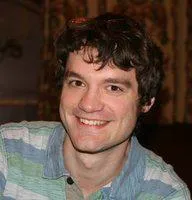My research as King's Prize Fellow will apply deep learning techniques and the principles of binocular vision to x-ray angiography, aiming to automatically create 3D models of a patient's coronary arteries. We will then be able to simulate blood flow through these models, and provide clinicians with a wealth of information to assist them with their decision-making when treating CAD patients.
Dr Christopher Arthurs
12 December 2018
Dr Christopher Arthurs Awarded King's Prize Fellowship
The Fellowship is designed to support outstanding post-doctoral researchers to make the transition to independence.

Dr Christopher Arthurs of the Biomedical Engineering Department has been awarded a King’s Prize Fellowship. The Fellowship, supported by the Wellcome Trust, is designed to support outstanding post-doctoral researchers to make the transition to independence.
Dr Arthurs has been working at King's for five years on the CRIMSON Project. CRIMSON's goals are to 1) develop cutting-edge methods for creating supercomputing simulations of blood flow in patients' arteries and veins, which can be used to understand disease, plan surgeries and optimise medical device design, and 2) make the tools as user-friendly as possible, enabling them to be used outside of the engineering community, including by clinicians, and thus helping to bridge the gap between research and the clinic.
One critical aspect of these simulations is that the CRIMSON Project uses high-fidelity geometric models of the patient's arteries, necessary to ensure that the simulation results accurately represent blood flow in the individual patient in question. Creating these models using MRI or CT scan data is relatively straightforward, says Dr Arthurs, as these images are recorded in 3D. However, not all patients will have such scans (such as in the case of coronary artery disease (CAD), patients normally only undergo x-ray angiographic imaging, which is a 2D modality, but one which is acquired from multiple angles).
Dr Arthur's background is in mathematics (University of Warwick), and computational cardiac electrophysiology (University of Oxford). He came to King's to work on blood flow, with a particular focus on the coronary arteries. During the project, Dr. Arthurs will be collaborating with the research team of Dr. Andrew King at King's, so that the work will benefit from their deep expertise in image processing and machine learning.
